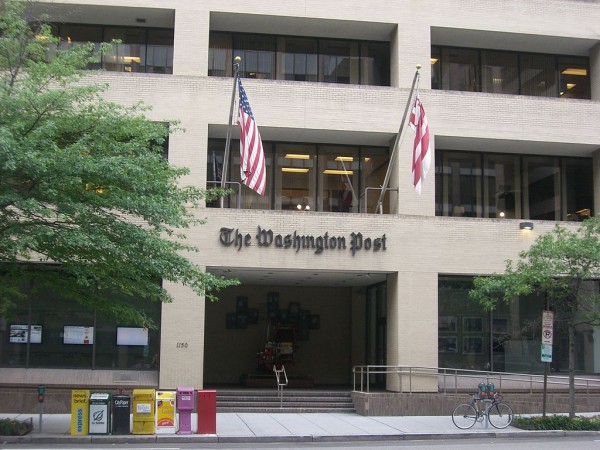
Advertisement
Within days after Donald J. Trump took the country (and the world) by storm and won the Nov. 8 election, the Washington establishment media, suddenly shaken to its core by the realization it could not must enough power and influence to push Hillary Clinton into the White House, began a smear campaign against the president-elect.
Launching the first in what would become a series of fake news salvos, the Washington Post published a story full of baseless, unsubstantiated allegations made by a shady organization no one had ever heard of that Russian intelligence fed information to hundreds of “alt-right” web sites aimed at hurting Clinton and helping Trump.
Among the named sites: Natural News, which prompted founder/editor Mike Adams, the Health Ranger, to demand a retraction. (RELATED: Trump calls out press for sabotaging his efforts to improve relations with Russia)
The Post, within a day, essentially did that, all but admitting that its fake news story about fake Russian news…was fake. But the die had been cast and the Post put the narrative in play: Without proof or any evidence, the paper claimed (and others followed) that Russia unduly influenced the election outcome for Trump because Moscow hated Clinton and anyway, that’s the only way she could possibly have lost to a former reality TV host and billionaire real estate mogul non-politician.
Now, we find out that the real recipient of Russian largess is…the Washington Post.
As reported by Liberty Blitzkrieg, a recent interview between Fox News’ Tucker Carlson and Eric Wemple of the Post, who covers the media, was forced to answer why his paper accepted so-called “native advertising” from Russia, which is essentially the Post receiving money from Moscow to publish propaganda.

While that may be news to most Americans, it certainly is a poorly-kept secret within the world of the Washington media. In fact, in 2007, Slate lampooned Russia’s Washington Post propaganda effort, “Russia: Beyond the Headlines.”
“Soviet propaganda hit the skids during the Gorbachev era, and as the empire broke up, its propaganda essentially vanished. But the heavy-handed purveyors of party-line orthodoxy and nationalist cant have returned with the rise of President Vladimir Putin,” Slate reported, not mentioning that the return of propaganda was largely thanks to Putin, a former KGB agent himself who is familiar with the intelligence tactic.
The Daily Caller also reported on this – and in fact, it’s not just Russia, but China also pays homage to the Post to run its propaganda:
Chinese and Russian propaganda supplements are regularly included in The Washington Post, but the widely read newspaper won’t say how much money it gets on the deals.
Fast forward to the 2016 election coverage – by the Post in particular, Washington’s quasi-official paper of record. Reporting on alleged Trump-Russia ties without a modicum of evidence or proof is the equivalent of journalistic malpractice; doing that while actually taking money from the Russian government and then trying to defend it is just reprehensible. (RELATED: The Top 10 Fake News Stories Of The Last Two Years That Were Relentlessly Pushed By The “Fakestream Media”)
During his interview with Carlson, Wemple’s initial excuse for allowing the propaganda to be placed in his paper was that he believes readers of the Post fully understand that such inserts are propaganda – though it’s not how they would know since, while they are marked as an “advertisement,” they are not clearly marked.
“That’s really your answer?” Carlson responded, noting that Wemple once attacked Politico co-founder Mike Allen for running native advertising, saying he was “all spun up” about it.
He also took Wemple to task for – as a media reporter – pointing out that his own paper takes native advertising designed to fool people into thinking a certain way about Russia that isn’t accurate.
Watch the full exchange below, but the main point here is this: The Post has been merciless in its effort to push the unsubstantiated and unproven narrative that Russia used fake news to help Trump, all the while padding its bottom line with money from the Russian government
Here’s the clip:
J.D. Heyes is a senior writer for NaturalNews.com and NewsTarget.com, as well as editor of The National Sentinel.
Sources:
Submit a correction >>
This article may contain statements that reflect the opinion of the author
Advertisement
Advertisements















